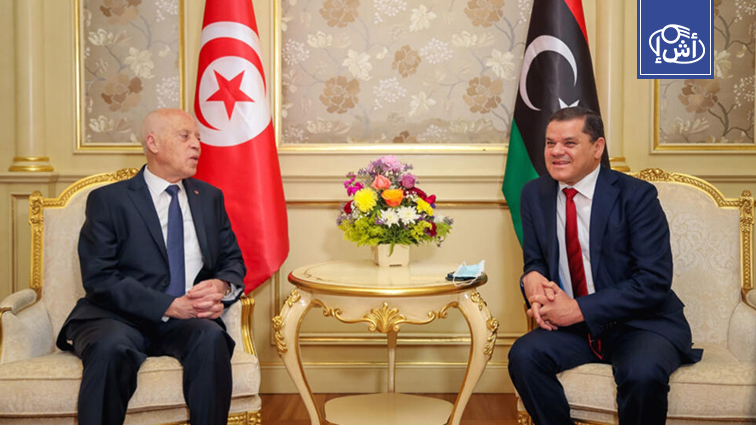The Tunisian President, Kais Saied, and the head of the outgoing National Unity Government in Libya, Abdel Hamid Dbeibeh, discussed the executive procedures for reopening the “Ras Jedir” border crossing.
This came during a meeting between them on the sidelines of the tenth session of the ministerial meeting of the Arab-Chinese Cooperation Forum in the Chinese capital, Beijing.
According to a statement issued by the Dbeibeh government, the two sides discussed following up on a number of common issues, including completing the work of the joint committee on the similarity of names, and mechanisms to support the private sector in the two countries.
The statement explained that Saeed and Al-Dbeibeh agreed to “urge the Ministry of Interior in both countries to carry out the tasks assigned to it to open the crossing and complete maintenance and development work for the crossing from the Libyan side.”
The Tunisian President stressed the need to “instruct the Tunisian authorities to complete the file of similarity of names, and to facilitate the procedures for Libyan citizens arriving in Tunisia,” according to the statement.
The statement stated that the two sides agreed to “support the private sector in the two countries in the fields of health, general contracting and industry by facilitating government procedures related to the smooth flow of work and cooperation between the two sides.”
For his part, the head of the Tunisian Observatory for Human Rights, Mustafa Abdel Kabir, revealed that “the crossing is scheduled to reopen on the first of next June, after the Libyan authorities closed it due to the armed clashes that the crossing witnessed last March 19 between the forces of the Ministry of the Interior of the National Unity Government, the term of which has expired.” And armed men from the border area.”
Abdel Kabir said, “The continued closure of the crossing caused huge losses amounting to 20 million Tunisian dinars (about 6.5 million dollars), due to the cessation of economic activities related to the crossing.”
Gaddafi’s last words to Tony Blair: It is a colonial campaign
